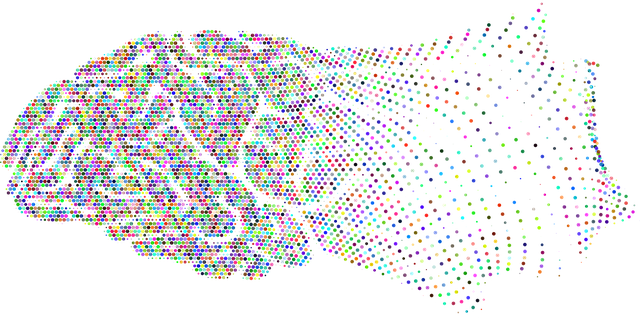Incorporating Westminster Spiritual-Religious Issues Therapy into community outreach enhances mental health support in diverse areas where faith impacts well-being. By understanding local needs and providing inclusive spaces, organizers can design tailored programs like stress workshops and coaching for specific demographics. A supportive environment with sensitivity training, inclusive language, and accessible resources encourages open expression and meaningful connections. Measuring impact through KPIs and longitudinal studies ensures success, while ongoing initiatives foster a resilient community network that drives positive change.
Community outreach programs play a pivotal role in fostering social cohesion and addressing spiritual-religious issues within local communities, especially in diverse settings like Westminster. This article delves into the comprehensive implementation of such programs, highlighting their therapeutic foundations, strategic targeting, inclusive design, and long-term sustainability. By exploring these key aspects, we provide insights into enhancing community well-being through tailored interventions inspired by Westminster Spiritual-Religious Issues Therapy.
- Understanding Westminster Spiritual-Religious Issues Therapy: A Foundation for Community Outreach
- Identifying Needs and Target Audiences: Customized Strategies for Effective Outreach
- Program Design and Implementation: Creating a Supportive and Inclusive Environment
- Measuring Impact and Sustaining Long-term Engagement: Evaluating Success and Community Building
Understanding Westminster Spiritual-Religious Issues Therapy: A Foundation for Community Outreach

In the context of community outreach programs, understanding the complex tapestry of Westminster Spiritual-Religious Issues Therapy is a foundational step. This therapeutic approach recognizes that spiritual and religious beliefs significantly influence an individual’s mental health and overall well-being, especially within diverse communities. By incorporating Westminster Spiritual-Religious Issues Therapy principles, outreach programs can effectively address the unique challenges faced by various groups, fostering stronger connections and enhancing coping skills development.
The integration of this therapy offers a holistic approach to conflict resolution techniques, targeting not just symptoms but the underlying spiritual dynamics. It encourages program organizers to create safe spaces where participants can explore their beliefs, share experiences, and develop mental health awareness. This inclusive strategy ensures that community outreach goes beyond surface-level interventions, providing lasting solutions by strengthening individuals’ resilience and promoting harmonious relationships within diverse communities.
Identifying Needs and Target Audiences: Customized Strategies for Effective Outreach

Identifying a community’s unique needs is a pivotal step in designing effective outreach programs. By understanding the spiritual-religious issues and mental health challenges specific to Westminster, organizers can tailor their strategies. For instance, a city with a diverse population may require personalized approaches for different cultural or faith groups. This customization ensures that outreach efforts resonate with target audiences, fostering engagement and trust.
For example, implementing Stress Management Workshops Organization programs could be tailored to meet the needs of working professionals, while Mental Wellness Coaching Programs Development might focus on adolescents facing academic pressures. Additionally, addressing these issues through a holistic lens, considering factors like access to resources and community support, is crucial. Incorporating feedback from local leaders and organizations active in mental health advocacy, such as those involved in Mental Health Policy Analysis and Advocacy, can further strengthen the outreach’s impact and ensure it aligns with existing community efforts.
Program Design and Implementation: Creating a Supportive and Inclusive Environment

When designing and implementing community outreach programs, such as those addressing Westminster Spiritual-Religious Issues Therapy, creating a supportive and inclusive environment is paramount. This involves ensuring accessibility to all, regardless of background or belief systems. Sensitivity training for program facilitators can help in fostering an atmosphere where participants feel safe to express their thoughts and experiences openly. Incorporating diverse perspectives in the design process enables a more comprehensive understanding of the community’s needs.
A well-structured program should offer not just physical space but also emotional safety. This is crucial for initiatives focusing on mental health awareness, trauma support services, and mood management. Utilizing inclusive language, providing multilingual resources where necessary, and tailoring programs to cater to different age groups and abilities all contribute to an environment that encourages participation and engagement. Such a supportive setting facilitates meaningful connections, enhances learning experiences, and ultimately achieves the program’s objectives more effectively.
Measuring Impact and Sustaining Long-term Engagement: Evaluating Success and Community Building

Measuring the impact of community outreach programs is paramount to evaluating their success and fostering long-term engagement. By implementing robust evaluation strategies, organizations can assess the tangible outcomes and intangible benefits that such initiatives bring to both individuals and the broader community. This involves tracking key performance indicators (KPIs), gathering feedback from participants, and conducting longitudinal studies to understand the lasting impact on mental health and well-being. For instance, programs focused on Westminster spiritual-religious issues therapy can measure improvements in coping skills development, anxiety relief, and burnout prevention over time.
Sustaining engagement requires a shift from one-off events to ongoing initiatives that foster a sense of community. By integrating program participants into the fabric of the community, organizations can create a supportive network that encourages continued involvement and empowers individuals to become advocates for positive change. This holistic approach not only strengthens community bonds but also ensures that the benefits of outreach programs extend far beyond the initial intervention, contributing to a more resilient and connected society.
Community outreach programs, powered by Westminster Spiritual-Religious Issues Therapy, are transformative tools for fostering connection and support. By understanding specific needs, designing inclusive spaces, and meticulously evaluating impact, these initiatives can build strong, vibrant communities. Customized strategies, tailored to diverse audiences, ensure that everyone has access to the resources they need to thrive. This holistic approach not only addresses immediate concerns but also paves the way for long-term engagement and positive social change.











